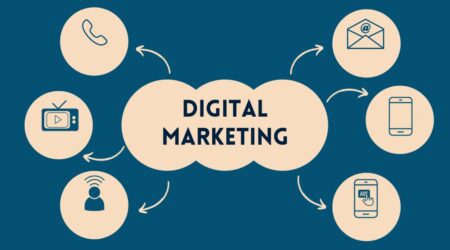The Role of Personal Reputation Management in Personal Branding
In today’s digital age, personal branding has become a crucial aspect of professional success. How you present yourself online can significantly impact your career opportunities, social relationships, and overall reputation. Personal online reputation management plays a pivotal role in shaping and maintaining your personal brand. This article delves into the critical role of personal reputation management in personal branding, highlighting its importance and offering strategies to enhance your online presence.
Establishing a Strong Online Presence
Establishing a strong online presence is the first step in personal online reputation management. Your online presence is a collection of all the information available about you on the internet, including social media profiles, blog posts, articles, and other digital footprints. A well-managed online presence helps create a positive first impression and reinforces your personal brand.
To establish a strong online presence, it is essential to ensure consistency across all platforms. Your social media profiles, LinkedIn, personal website, and any other online platforms should reflect a cohesive image and message. Use professional photos, write compelling bios, and regularly update your profiles with relevant content that showcases your expertise, values, and achievements. Consistency in your online presence builds credibility and trust, which are foundational elements of a strong personal brand.
Monitoring and Controlling Your Digital Footprint
Monitoring and controlling your digital footprint is a crucial aspect of personal online reputation management. Your digital footprint includes all the data and content that exists about you online. It is important to regularly search for your name on search engines to see what information is available and ensure that it aligns with your desired personal brand.
Setting up Google Alerts for your name and relevant keywords can help you stay informed about new content and mentions of you online. This allows you to quickly address any negative or inaccurate information that may harm your reputation. Additionally, consider using online reputation management tools that offer comprehensive monitoring and provide insights into your digital footprint. By actively managing your digital presence, you can protect your personal brand from potential damage and ensure that your online image accurately reflects your identity and values.
Engaging Positively on Social Media
Social media is a powerful tool for personal branding, but it also poses significant risks to your online reputation if not managed carefully. Engaging positively on social media involves more than just posting content; it requires thoughtful interactions and a consistent, professional approach to online communication.
To use social media effectively for personal branding, curate content that aligns with your professional goals and personal values. Share industry news, insights, and achievements that showcase your expertise. Engage with your audience by responding to comments, participating in relevant discussions, and networking with other professionals in your field. Avoid controversial topics and negative interactions that could harm your reputation. By maintaining a positive and professional presence on social media, you reinforce your personal brand and build a strong, reputable online image.
Addressing Negative Content and Feedback
Negative content and feedback are inevitable in the digital world, but how you handle them can significantly impact your personal brand. Personal online reputation management involves strategies to address and mitigate the effects of negative content and feedback effectively.
When encountering negative content, respond promptly and professionally. Acknowledge any valid concerns, apologize if necessary, and provide solutions to resolve the issue. Engaging constructively with critics can demonstrate your commitment to improvement and customer satisfaction. If the negative content is defamatory or false, consider taking appropriate legal action or working with online platforms to remove it. By addressing negative content head-on and maintaining a composed and professional demeanor, you can protect your reputation and reinforce your personal brand’s integrity.
Building a Positive Personal Brand
Building a positive personal brand is a continuous process that involves deliberate efforts to shape how you are perceived online. Personal online reputation management is integral to this process, as it helps you control the narrative and highlight your strengths and achievements.
To build a positive personal brand, focus on creating valuable and authentic content that resonates with your target audience. Share your knowledge through blogs, articles, and social media posts that provide insights and solutions relevant to your field. Engage in community service, industry events, and professional organizations to enhance your credibility and visibility. Showcase testimonials, endorsements, and case studies that demonstrate your expertise and reliability. By consistently delivering value and maintaining authenticity, you can build a personal brand that stands out and positively influences how others perceive you.
Conclusion
In conclusion, personal online reputation management plays a vital role in shaping and maintaining your personal brand. By establishing a strong online presence, monitoring and controlling your digital footprint, engaging positively on social media, addressing negative content and feedback, and building a positive personal brand, you can effectively manage how you are perceived online. This proactive approach to reputation management ensures that your personal brand reflects your true identity, values, and professional aspirations, ultimately supporting your career growth and personal success. Investing in personal online reputation management is essential in today’s digital landscape, where your online presence can significantly impact your opportunities and relationships.










Leave a Reply